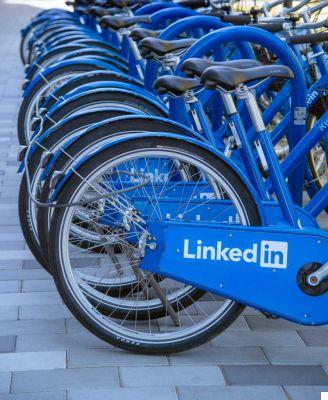The breaks are part of the rhythms of work. But what if they were used to practice mindfulness? Some companies have already begun to include mindfulness and test its benefits.

Last update: 03 March, 2022
Highly responsible activities, conflicts with colleagues or hectic pace are some reasons for stress in the workplace. In light of this, companies have begun to think of some solutions to increase the productivity and well-being of workers. Between these we find mindfulness in the workplace.
Reducing anxiety, worries and distractions at work is essential. The World Health Organization (WHO) itself defines a healthy work environment as follows: "one in which workers and managers collaborate in a process of continuous improvement to promote and protect the health, safety and well-being of workers".
With these expectations, there are several studies that have analyzed how mindfulness can deliver significant changes in workspaces. We ask ourselves, therefore, how can it be adopted? And what advantages can it offer a company?
Mindfulness in the workplace reduces sick leave
The main benefit of full awareness, or mindfulness, is the reduction of sick leave. This is what an article in La Vanguardia indicates: well-known brands such as Google, Apple, Repsol or LinkedIn have begun to introduce this practice in their workspaces, reducing sick leave due to 78% stress, anxiety or depression.
However, it offers many other benefits. Increased self-confidence will help you be more proactive, it will improve concentration and reduce distractions, gaining greater agility and mental clarity if the work is creative.
If the most reputable companies have relied on mindfulness for improve the well-being of their workers, perhaps it's not such a far-fetched idea that all organizations start adopting it. But how to include mindfulness in the workplace?
Workplaces that integrate awareness not only reduce downtime, but also manage to attract and retain talent.
Increase productivity with mindfulness in the workplace
By introducing the practice of full awareness, energy and productivity increase. However, for this to happen, it must be done frequently. Similarly, other strategies to be implemented are:
- Engage in mindfulness before work: On the commute to work, workers can focus on breathing and movement. They will not think about the pending work, but will focus on the present moment. In this way they will avoid starting the day stressed and will be more prepared to face the tasks.
- Take advantage of the breaks: When you have a coffee, go out for a breath of fresh air or remain seated, it is helpful to practice full awareness. Focusing on the taste of coffee or food (if it's your lunch break) or taking a short walk will help relieve stress and make you spend your workday with greater mental clarity.
- Participate in group dynamics: Companies can create group dynamics during breaks or after work so that workers learn full awareness and share their experiences and the changes they are experiencing.
- Mindfulness after work: To avoid taking worries home, workers can practice mindfulness at the end of the work day. They can focus on the present moment for themselves; once they quit their jobs, they won't think about it again until the next day.
Conclusions
Those presented are just a few ways you can include mindfulness in the workplace. Several companies have already joined this initiative.
It is also possible to dedicate rest areas: soft music, furniture that promote relaxation, even zafù cushions for those who want to meditate.
Do you have a habit of engaging in mindfulness in the workplace? Take advantage of the breaks to focus on the present moment? There are many people who have made this practice a way of life.
Full awareness appears essential to reduce stress and improve well-being not only at work, but in all areas of life.


























